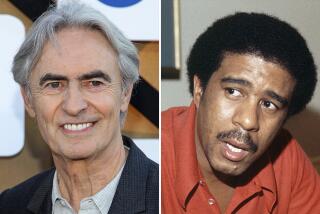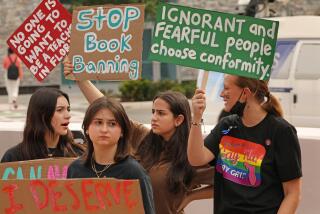Responding to Author’s Defense of Censorship
Freedom of expression is the vital basis of our democracy. The limits on that freedom necessarily must be the absolute minimum to avoid the tyranny of mass opinion and conformity.
The impulse to protect children from exposure to sensitive material can cripple public discussion of issues that need airing.
Does Steffens support the FCC “indecency” standards that ban any broadcasting with sensitive content, even after midnight, because children could be listening?
Does Steffens support those who believe that all views other than their own must be suppressed?
Does Steffens understand that censorship is more often a product of intolerance than of promoting the public good?
Does Steffens realize repression does not necessarily have to be imposed by the government?
The “slippery slope” analogy that Steffens derides has ample historical precedence in McCarthyism. What began as a fringe obsession was exploited for political gain until the public was so fearful of the allegedly communist conspiracy that it was willing to sacrifice freedoms; it was a climate in which newspapers couldn’t print the truth about false allegations and in which speaking out could mean being blacklisted.
This debate is not about whether children will read profanity in the newspaper or about the sale of 2 Live Crew albums to 11-year-olds. It is about whether we as a nation have faith in the experiment our founding fathers began.
Our freedom is in peril when we begin to believe that a good thing is to be found in a little censorship--which is a castor oil administered only in grim circumstance.
DANA GABBARD
Los Angeles
More to Read
The biggest entertainment stories
Get our big stories about Hollywood, film, television, music, arts, culture and more right in your inbox as soon as they publish.
You may occasionally receive promotional content from the Los Angeles Times.










